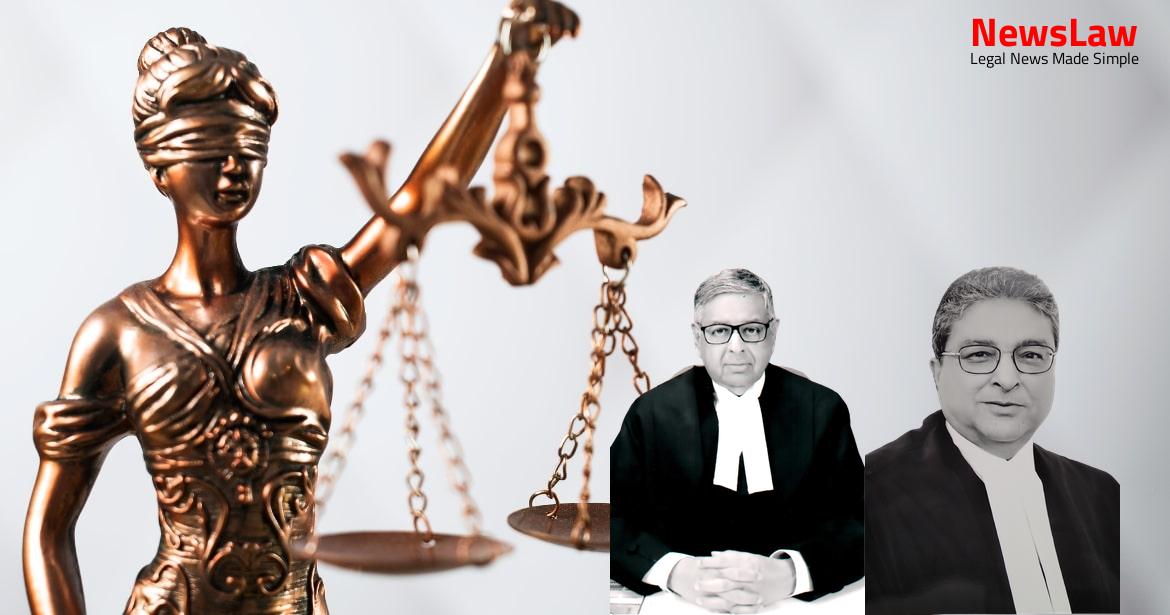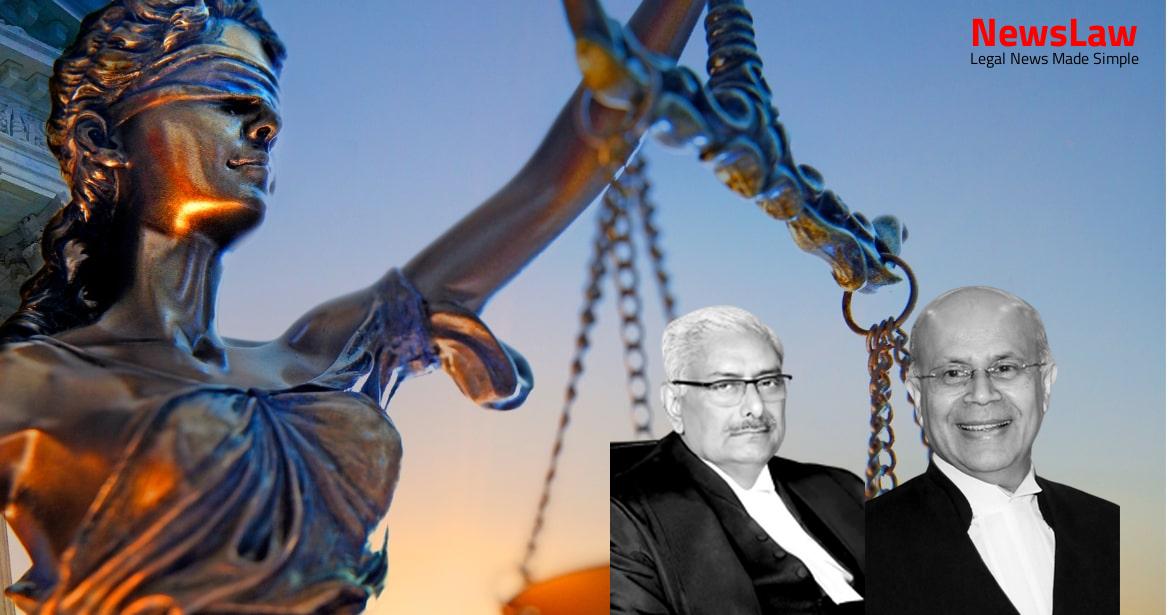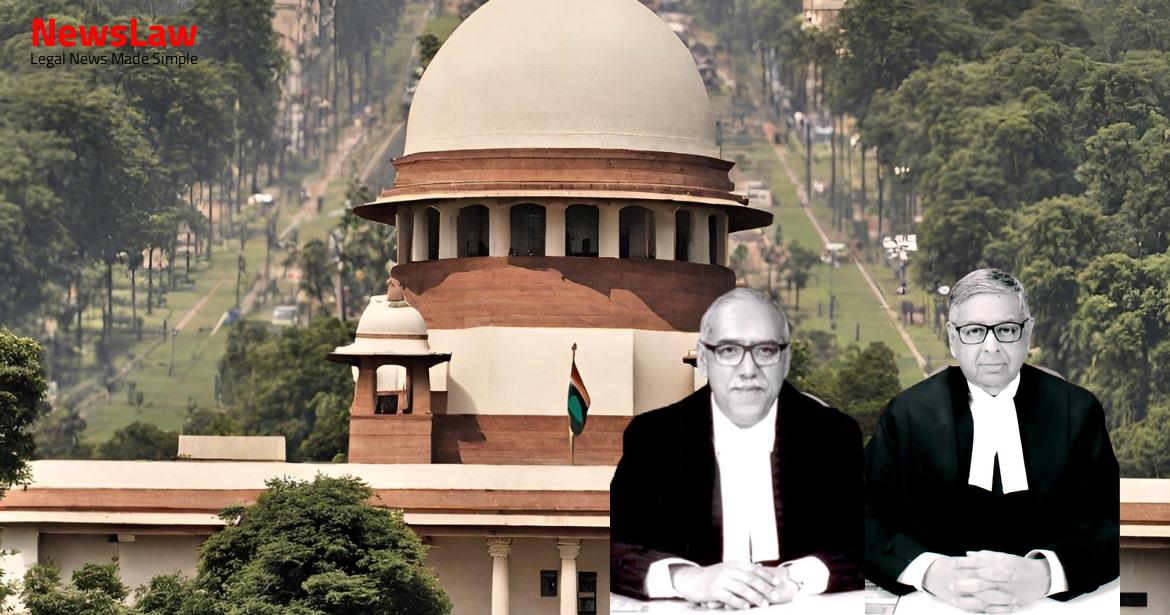Explore a complex legal case where the High Court scrutinized the validity of a disputed Will, overturning the decisions of the Trial Court and First Appellate Court. Delve into the court’s meticulous legal analysis and interpretation of Section 63 of the Indian Succession Act, shedding light on the rules for executing Wills. Unravel the implications of the court’s findings on witness testimonies, attestation, and the crucial role of evidence in determining the authenticity of legal documents.
Facts
- The High Court set aside the concurrent finding of the Trial Court and the First Appellate Court regarding the genuinity of a Will of Kishan Singh.
- The Will in question bequeathed agricultural land in Haryana to Harnam Singh.
- The agricultural land comprised of 52 kanals and 3 marlas in the district of Kurukshetra.
- Harnam Singh claimed to be the legatee under the disputed Will, but the Assistant Collector rejected the plea of mutation as the Will’s genuineness was contested by the State of Haryana.
- The Will stated that Harnam Singh was looking after late Kishan Singh, leading to a dispute over mutation of the land in favor of Haryana State, invoking the doctrine of escheat.
- The Will did not specify the area or description of the land, causing further complications in the case.
- On Kishan Singh’s death, Harnam Singh claimed rights based on the Will, even though they were not blood-related.
- The suit sought relief against auctioning or alienating the property, with other legal heirs as defendants following the rule of succession.
Also Read: Clarifying Legal Requirements for Approval in Disciplinary Proceedings
Arguments
- The appellant, State of Haryana, is challenging the legality of the judgment delivered by the High Court for the State of Punjab and Haryana at Chandigarh on May 5, 2008.
- The court could not accept the claims that the deceased ever executed the will in favor of the plaintiff.
- After considering the testimonies of PWs 1, 2, 3, and 4, it was concluded that no will was executed by the deceased in favor of the plaintiff.
- Issue No. 1 was decided against the plaintiff and in favor of the defendant.
- The First Appellate Court upheld the judgment, noting that consistency among witness statements does not prove the execution of the will.
Also Read: Significance of Possession in Property Law
Analysis
- Challenged the High Court’s ruling on the Will being proved in terms of Section 63 of the Indian Succession Act, 1925.
- The Trial Court and the First Appellate Court’s findings on the Will not being proved were interfered with by the High Court.
- The High Court conducted a detailed factual inquiry which was not permissible under Section 100 of the Code of Civil Procedure, 1908.
- Not enough evidence to prove the thumb impressions on the Will belonged to the deceased Kishan Singh.
- No perversity found in the judgments of the Trial Court and First Appellate Court.
- Evidences of the witnesses were disbelieved for lack of reliability and confidence.
- The attesting witnesses were nephews of late Kishan Singh.
- Defendant nos. 2 to 4 were struck off from the array of parties in the First Appellate Court.
- The judgments and decrees of the lower courts were set aside, and the plaintiff’s suit was decreed.
- Contradiction in the evidences of attesting witnesses regarding the place of execution of the Will.
- The Trial Court found the execution of the will to be perfunctory and casual, with no mention of the land to be bequeathed or proper attestation.
- The Trial Court concluded that the due execution of the will was not proved.
- The High Court formulated a question regarding the genuineness of the will alleged to be executed by Kishan Singh.
- The High Court noted that the will was not a registered document according to the respondent’s argument.
- The signature or mark of the testator, or the signature of the person signing for him, must be placed in a way that shows intent.
- Section 63 of the 1925 Act outlines the rules for the execution of unprivileged Wills.
- Every testator, except certain individuals listed, must sign or affix their mark to the Will, or have it signed by someone else in their presence and by their direction.
- The option of questioning the claim of the State of Haryana over the subject-land under the doctrine of escheat is not closed in this judgment.
- It is uncertain whether the original defendant nos. 2 to 4 were served summons or notice during the trial.
- The inter-se dispute between the State of Haryana and defendant nos. 2 to 4 cannot be resolved in this appeal as fresh evidence would be needed to adjudicate that question.
- Adjudicating the inter-se dispute would create a new issue not addressed in the original suit from which the appeal arose.
Also Read: Prospective Application of Consumer Protection Act Time Limit
Decision
- Judgments of the Trial Court and First Appellate Court are restored.
- Legal representatives of original defendant nos. 2 to 4 can bring appropriate action over the suit land.
- No order as to costs shall be given.
- The appeal is allowed and the High Court judgment is set aside.
Case Title: STATE OF HARYANA Vs. HARNAM SINGH(DEAD) THR. LRS. . (2021 INSC 786)
Case Number: C.A. No.-006825-006825 / 2008



